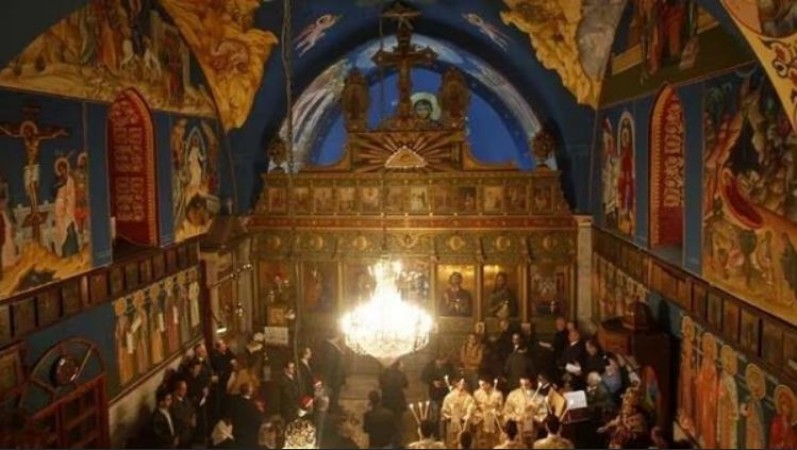
Tragedy struck on a somber Thursday night when an explosion rocked Gaza's most ancient Greek Orthodox Church, Saint Porphyrius, leaving a devastating trail of death and destruction in its wake. This horrific incident occurred just one day after the Al Ahli Baptist Hospital suffered a similar fate, with Israel reportedly implicated in both bombings.
Here's what we've managed to piece together about the Saint Porphyrius Church bombing:
Multiple Casualties: The blast at the Greek Orthodox Saint Porphyrius Church in Gaza City resulted in a harrowing loss of life, with numerous individuals succumbing to the calamity. The extent of the devastation has sent shockwaves through the region, leaving the community in mourning.
Israeli Involvement: According to an article published in the Wall Street Journal, Israel has claimed responsibility for the airstrike on this sacred place of worship. The Israeli military has stated that the strike was intended to target a command and control center linked to the launching of rockets into Israel. The incident has raised numerous questions about the collateral damage caused by such operations.
Shelter for the Displaced: Tragically, the Saint Porphyrius Church had been serving as a sanctuary for countless individuals who were forced to flee their homes amidst the ongoing Gaza conflict. As they sought refuge within the church's protective walls, it became a symbol of hope and shelter in turbulent times.
Clashing Accounts: Prior to Israel's admission of responsibility, the Greek Orthodox Patriarchate of Jerusalem had blamed the attack on Israeli airstrikes. These contrasting narratives have added to the complexity of the situation, raising concerns about the safety of civilian structures in conflict zones.
Historical Significance: Saint Porphyrius Church, an architectural relic that stood as a testament to time, was originally erected by the Crusaders in the year 1150 AD. Its historical significance and resilience over centuries made it a cherished treasure in Gaza, serving as an enduring symbol of faith and resilience.
Interfaith Sanctuary: Located within Gaza City, Saint Porphyrius Church transcended religious boundaries, providing a haven for people of diverse faiths. Over the generations, it welcomed individuals seeking solace and refuge, reinforcing the values of unity, compassion, and humanity.
Strong Condemnation: The Greek Orthodox Patriarchate of Jerusalem issued a vehement denunciation of the church's bombing. In a statement, the Jerusalem Patriarch expressed deep concern, stating, "Targeting churches and their institutions, as well as the shelters they provide to protect innocent citizens, especially children and women who have lost their homes due to Israeli airstrikes on residential areas over the past 13 days, constitutes a war crime that cannot be ignored." The international community is now looking to address this tragedy and its broader implications.
The Saint Porphyrius Church bombing stands as a stark reminder of the devastating human cost incurred during times of conflict, with concerns mounting about the security of religious and civilian structures in the midst of military operations. As the world watches in sorrow and alarm, the need for a peaceful resolution to the conflict in Gaza becomes more urgent than ever.